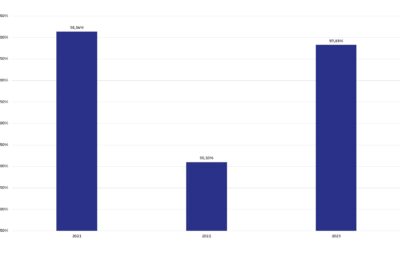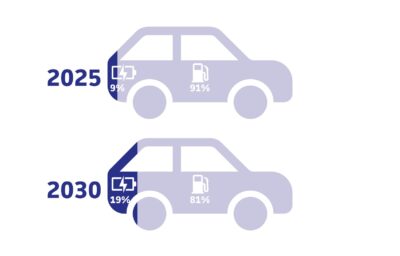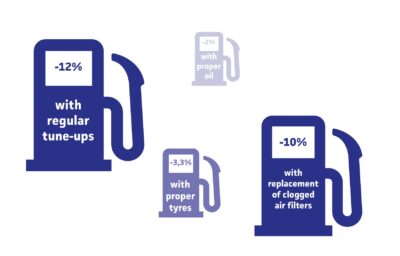Proper maintenance of vehicles is beneficial for their environmental performance because it helps optimize engine efficiency and reduce harmful emissions. Regular maintenance, such as tuning the engine, replacing air filters, and keeping the exhaust system in good condition, ensures that the vehicle operates at its peak efficiency levels. This not only conserves fuel but also minimizes the release of pollutants into the atmosphere, such as carbon monoxide, nitrogen oxides, and particulate matter. By maintaining vehicles properly, owners can contribute to lower greenhouse gas emissions and reduce their environmental impact, promoting cleaner air and a healthier planet. Maintaining vehicles in optimal conditions, rather than replacing them, also limits pressure on natural resources.
Circular economy, the repair of vehicles and of their components, and the replacement or reuse of spare parts can help achieving a more sustainable road mobility and improve the longevity of cars, reducing the footprint of imported vehicles and imported resources. But to do so, the independent, multi-brand automotive aftermarket needs a regulatory framework which prevents the establishment of brand-specific monopolies and enables it to compete with franchised repairers. ADPA advocates for European legislation to always ensure that the repair of vehicles remains technically feasible and economically viable.
Electric vehicles are becoming more and more common on European roads. However, two interlinked sources of concern continue to slow down their up take. Consumers are concerned with the total cost of ownership of such vehicles, considering that their repair, while maybe less frequent, is also often more costly due to the relative fragility and complexity of traction batteries. Also, the handling of these batteries comes with concerns, considering the associated risks in terms of toxic chemicals, fire and high voltage. ADPA therefore advocates that all technical information needed to safely operate on individual components of batteries should be made available to the independent aftermarket, in order to offer consumers with quality and affordable alternatives.
Emissions from the exhaust pipe, the brakes and the wheels can be significantly reduced over the lifetime of a vehicle if it is properly maintained and serviced. ADPA advocates that to do so, independent workshops need to have access to the same inputs as franchised ones, including the correct identification of potential replacement parts and accurate technical information.

Sustainability
17.05.2024
The rating of the environmental performance of new cars shows stagnation over the last {...}
Read more
Sustainability
14.05.2024
The share of electric vehicles in the existing car park will slowly but surely increase in the upcoming {...}
Read more
Affordability, Sustainability
09.05.2024
Proper servicing and maintenance of vehicles can significantly reduce their fuel {...}
Read more